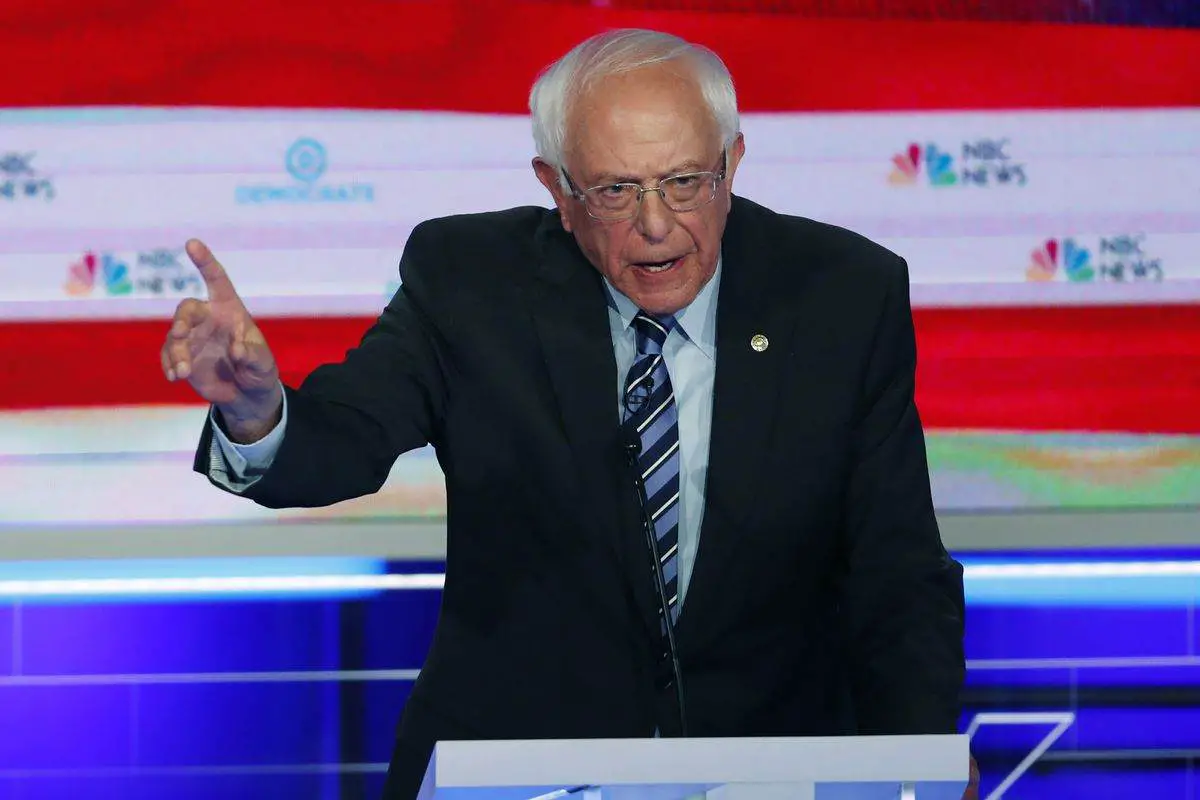Earlier this week, while speaking on the Joe Rogan podcast, Vermont Sen. Bernie Sanders opened up with his thoughts on the current format and makeup of the Democratic primary debates. His assessment is negative in tone, calling the debates a “reality tv show” where candidates fight with one another to create soundbites. Bernie’s main concern is that with such limited time to discuss major issues, viewers aren’t being served by a full exploration of a candidate’s views.
As Bernie says, nobody can explain healthcare in America in 45 seconds:
“You shouldn’t even call them a debate. What they are is a reality TV show in which you have to come up with a soundbite and all that stuff.
“It’s demeaning to the candidates and it’s demeaning to the American people. You can’t explain the complexity of health care in America in 45 seconds, nobody can.”
The Vermont senator got candid while responding to a question on whether he got frustrated by the time constraints placed on candidates during the debates.
Watching the candidates on stage, you can tell they’re frustrated with it. The time allotted for answering questions is as long as it can be with 10 people on stage, and the issues are very complex. The end result is a candidate’s 40-page plan for something boiled down to a 1-minute answer which doesn’t address the critical nuances surrounding their views.
On the other hand, what should the DNC be doing? Bernie doesn’t have a good answer, either:
“I think the DNC is in a difficult position. They have 20-plus candidates and they wanna give everybody a fair shot, which is the right thing to do. And then if you’re going to have 10 candidates up on the stage, what do you do?
Despite his sympathy, the 2020 Democratic hopeful said change is needed to keep the American people adequately informed.
Change may be needed to keep the American people adequately informed, but Bernie doesn’t offer a thought on what that change would look like. Extending the debate to a longer broadcast, upwards of 3 or 4 hours would give candidates more time, but that will never fly for multiple reasons. There is no TV network, cable or broadcast, willing to give up an entire primetime evening, aside from CNN, to hold a political debate. Even the most ardent of political observers get tired of the format after a while and the questions can become repetitive as candidates revert to talking points.
Bernie continued to list his issues with the current format:
“There are other ways that you’ve gotta do it because the issues facing this country are so enormous, and in some cases so complicated, nobody in the world can honestly explain them in 45 seconds. What that encourages people to do is come up with soundbites or do absurd things.
“If I yell and scream on this show, if I took my clothes off, it would get a lot of publicity, right? But if you give a thoughtful answer to a complicated question, it’s not so sexy for the media.”
Let’s join together and work to make sure Bernie doesn’t have to take his clothes off at the next debate to get attention, can we all agree on that?
The hard reality is that the format we have is the format that will continue to dominate televised political debates. Networks love the short soundbites and forcing candidates to jump up and down to get attention because it’s more entertaining for viewers, but that may be where the issue lies.
Is the purposes of the debate to entertain or inform? Candidates feel like they’re there to be puppets sometimes for moderators who lob “gotcha” questions at them and they have to dance around to answer without looking bad. Television networks like the pageantry and entertainment of it all. Viewers tune in to see whether candidates mix it up and attack each other. At the end of the day, has anyone learned anything more about specifics of any proposals offered by the candidates?
The most memorable thing that viewers take away is usually related to one candidate attacking another, over something unrelated to current issues.
Either way, it’s not like Bernie Sanders, or anyone else is going to sit-out the next debate in protest over the format. Candidates need to be there whether they enjoy it or not since the national presence is a must for campaigns to keep a high profile.
The real issue, perhaps, is the sheer number of candidates on stage. Ten is simply too high, but that’s how it goes for these early debates. Bernie will have to bide his time and wait until the field gets winnowed and there are no more than five or six candidates remaining for a debate. Then each candidate gets more time to explain their answers with less need to disrobe on national TV.
Donate Now to Support Election Central
- Help defend independent journalism
- Directly support this website and our efforts
